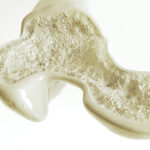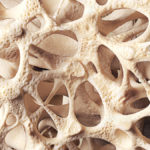By Bonnie Jenkins, Advanced Natural Wellness
If you’re a man at risk of prostate cancer, you might want to bypass the seasonal grilled steak and ribs for a soy burger. Of course, if you’re like my carnivorous husband, that idea is almost sacrilegious. But, consider this: Men living in Asia have a considerably lower rate of prostate cancer. Why? Because their daily diet includes soy.
Here’s even better news: A soy-rich diet may improve the prognosis for men who have already been diagnosed with prostate cancer. And the effect seems to be immediate.
PSA- Rising
What’s so special about soy? A growing number of researchers and nutritionists believe that the benefit comes from the high amounts of isoflavones in soy – phytochemicals that keep cells from mutating into cancer cells. Studies have found that adding a daily dose of soy to the diets of men diagnosed with prostate cancer causes a quick and noticeable improvement in their PSA levels. PSA – a.k.a. prostate-specific antigen – is commonly used to screen for prostate cancer and for tracking the disease once it’s been found.
MD Exposes the Hidden Danger to Your Eyes

When your eyesight starts to fail, it's a real problem. Suddenly you can't go to the grocery store... you can't get to the doctor if you have an emergency... you can't meet your friends for dinner…
Your "regular" doctor doesn't have time to keep up with the latest research. And the same goes for eye doctors. They go to school to learn how to fit you for glasses and contacts, but have no way of preventing the damage and loss of eyesight that threatens your freedom and independence.
Let me show you something that explains a LOT about how your eyes work.
In my FREE Special Report, I'll show you a HUGE, untapped resource for your eyes that safely and naturally restores clear, effortless eyesight.
Click here to get started...
In one recent study, Australian researchers found that adding about 2 ounces of soy each day for one month resulted in a 13 percent drop in total PSA and a 27 percent increase in the free-to-total PSA ratio in men with prostate cancer. The 29 men, who were scheduled for radical prostatectomy, ate the soy in four slices of bread containing soy grits — soybeans that have been toasted and cracked into coarse pieces and eaten as a cereal or added to recipes. They were then compared to a control group of men who ate either plain wheat bread or bread made with a combination of soy and linseed. Among the control group, total PSA scores shot up 40 percent and 21 percent, respectively. Their free-to-total PSA level also worsened by 16 percent and 10 percent.
This research by scientists at Monash University in Australia follows another study showing a reduction in PSA levels among men with early-stage prostate cancer – the “watch and wait” category for this often slow-growing disease – who drank a little over 2 ounces of soy daily in a milkshake. In that three-month study, 20 percent of those men had a PSA drop of 3 or more points.
Curbing Cancer
What was really remarkable about the Australian findings was just how quickly soy worked to improve PSA scores. Results were seen after just one month – pretty remarkable when you consider that this disease usually has a very long latency period. In fact, it can be 16 to 20 years before a man experiences evidence of prostate cancer. But this study clearly shows that eating just two ounces of soy per day over a lifetime can significantly reduce the risk of prostate cancer – and improve PSA scores of those already diagnosed with the disease.
So, instead of that steak or greasy hamburger, try eating like Japanese men, who have one of the world’s most soy-rich diets – and the lowest rates of prostate cancer in the world. No, you don’t have to completely give up meat. But you should eat two to three ounces of soy three or four days a week. Soy burgers, soy cheese, and even soy ice cream are all delicious options. And make sure you include fermented products like soy milk or soy yogurt since this form of soy is better absorbed in the gut.
Are You Suffering From...
- Love handles and a pot belly
- Romance that isn't what it used to
- Forgetfulness and inattention
- Low (or no) strength and endurance
- A sex drive that's shifted into neutral...or worse
If so...you may have Mature Male Burnout. Click here to discover more about this unique condition and what you can do about it.
One Last Thing …
Of course men aren’t the only ones that can benefit from soy. Women with osteopenia or osteoporosis can reap the rewards of soy too. A new study shows that the isoflavones in soy slow bone resorption (the loss of bone) and actually increase bone formation. The researchers from Japan and China discovered this after pooling the findings from nine previous studies and looking at specific markers for bone loss and bone formation that showed up in the blood of 432 total participants. They found that getting just 90 milligrams of isoflavones a day for 12 weeks was enough to boost bone health. That’s how much is in three cups of soy milk, two-and-a-half ounces of soy nuts or a cup of miso soup.
There’s just one caveat. While this review of previous studies provides evidence of soy’s bone-building abilities, other studies have suggested that, in large amounts, the hormone-like isoflavones in soy may encourage the growth of estrogen-dependent breast cancer cells. If you are at high risk for breast cancer or have been diagnosed with the condition, check with your doctor before adding large amounts of soy to your diet.
This Just In …
If cancer prevention wasn’t enough to get you turned on to soy, think about your heart. According to a newly published study in the American Journal of Clinical Nutrition, both soy isoflavones and soy protein can slash cholesterol levels.
After pooling the data from 11 randomized trials conducted between 1990 and 2006, the authors of the study found that soy isoflavones lowered total cholesterol by almost two percent and LDL levels by 3.58 percent. Soy protein enriched with isoflavonoides – what you’d get naturally by eating soy foods – performed even better. In fact, soy protein cut LDL levels by five percent and boosted HDL (the good cholesterol) by three percent. And soy’s effect was even more pronounced in people already battling high cholesterol levels.
While a two to five percent reduction might not sound like much, it could make the difference between normal and high or borderline high levels – a difference that might just help you avoid dangerous statin drugs. But remember, soy isn’t a magic bullet. To get the most from this little green bean, add it to a low-fat, low-cholesterol diet and exercise program to significantly improve your cholesterol profile.
References:
Dalais FS, Meliala A, Wattanapenpaiboon N, et al. “Effects of a diet rich in phytoestrogens on prostate-specific antigen and sex hormones in men diagnosed with prostate cancer.” Urology. 2004;64:510-515.
Li Z, Aronson WJ, Arteaga JR, et al. “Feasability of a low-fat/high-fiber diet intervention with soy supplementation in prostate cancer patients after prostatectomy.” European Journal of Clinical Nutrition. Advance online publication 28 March 2007.
Ma DF, Qin LQ, Wang PY, et al. “Soy isoflavone intake inhibits bone resorption and stimulates bone formation in menopausal women: meta-analysis of randomized controlled trials.” European Journal of Clinical Nutrition. Advance online publication 28 March 2007.
Taku K, Umegaki K, Sato Y, et al. “Soy isoflavones lower serum total and LDL cholesterol in humans: a meta-analysis of 11 randomized controlled trials.” American Journal of Clinical Nutrition. 2007; 85: 1148-1156






